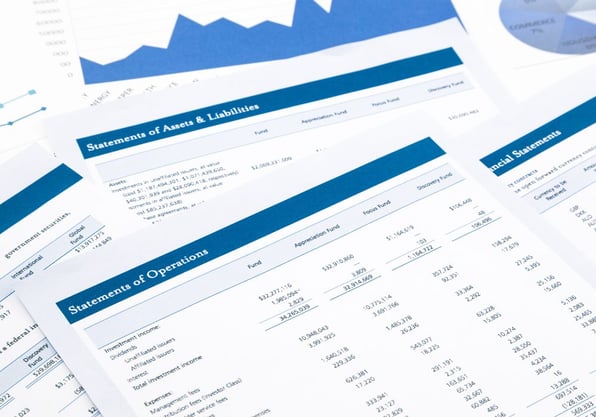Some of our clients and prospective clients have asked if they should try to get their companies sold in 2021 while capital gains tax rates are low. In addition to the potential (likelihood) of higher tax rates next year, there are other compelling reasons to act without delay to try to get the transactions done in 2021—interest rates are low, banks are supportive to lend money for acquisitions, buyers have capital to deploy, etc.
However, we believe tax rates should not drive M&A decisions. The decision if and when to sell your business should be based on many factors, tax planning being one of them.
Because there are compelling reasons on both sides of the question, Chuck wrote this White Paper titled “To Sell or Not to Sell in 2021—Don’t Let the Tax Tail Wag the Dog.” We hope you find the information insightful.
Click here for your complimentary copy: TL Wag the Dog Capital Gains White Paper
To Sell or Not to Sell in 2021—Don’t Let the Tax Tail Wag the Dog.
Is it time to sell your business because of potential increases in capital gains tax rates? The better question is simply this: Is now an opportune time to sell?
At our weekly TobinLeff partners meeting, we talk about what’s happening in the market, including different opportunities we’re seeing for clients and prospective clients. Recently, one of our strategic partners sent us a letter asking about a couple of clients, pointing out that now may be the time to sell because of tax savings.
This brought on a lively discussion if we should recommend to clients and prospective clients to try to get their transactions completed in 2021. The obvious reasons for acting now were put on the table. Capital gains rates are low and most likely will be higher in 2022. Higher income tax rates can cause valuations to be lower. (Some valuations are based on the discounted future cash flow or capitalization of historic earnings method which brings into play after-tax cash flow. Higher tax rates mean lower after-tax cash flow that correlates to lower valuations.) In addition, interest rates are at historic lows and banks are actively lending money for M&A transactions. On top of that, the M&A market is open and highly active with all types of buyers with capital to deploy.
Our enthusiasm to promote the “Sell in 2021” message was tempered because we believe you cannot let tax rates drive M&A decisions. Knowing there are arguments on both sides of this important decision for business owners, we felt it can only help to put forth some of the reasons for and against trying to sell in 2021.
The Numbers
Much has been written in the last several months regarding the strategy of selling in 2021 to lock in lower capital gains tax rates. The simple theory is that if the current administration’s proposed tax plan is approved, the amount of capital gains a seller would incur on a transaction in 2022 could nearly double compared to 2021. Investors currently pay a 23.8% top rate on long-term capital gains. That includes a 20% capital-gains tax on assets held for more than a year. It also includes the 3.8% surtax on net investment income, which was created by the Affordable Care Act to fund Medicare expansion. Under the administration’s current proposal, the federal capital-gains tax rate would be as high as 43.4% (including an existing Medicare surcharge), according to a Bloomberg report.
Focusing only on federal income taxes, if a company were to be sold for a gain of $10 million in 2021, the capital gains taxes owed at the current rate of 23.8% would be $2.38 million, and the seller would be left with $7.62 million. If the administration’s plan is approved, this tax would increase to $4.34 million, and the seller would be left with $5.66 million. The difference in these rates would leave the seller with $1.96 million more in 2021 compared to 2022. As a result, the seller on December 31, 2021 would end up with 34.6% more cash than the seller on January 1, 2022. On the surface, this seems to be a compelling argument to hit the button to sell your business.
Wagging the Dog
There is an old saying that goes “don’t let the tax tail wag the investment dog.” To allow potential tax changes to dictate buy and sell decisions is simply not looking at the entirety of the situation. Many aspects of the proposed tax plan remain unclear. It is also uncertain whether Democrats, who only have the tiebreaker in the Senate, would be able to pass the proposal as written. Even if it passes, the effective date of the tax hike remains unknown. Equally important, the administration has indicated its willingness to compromise, and thus it seems likely that the proposed plan is the worst-case scenario, and the final tax bill will less for sellers in 2022 than the one proposed today. So, pushing the sell button now may be a bit premature, letting an imaginary tax tail wag the proverbial dog.
Unfortunately, owners of privately held companies do not have the luxury that owners of marketable securities have, which is the ability to decide on December 31, 2021 to sell before any impending income tax changes effective January 1, 2022. If owners of private companies want to sell by year end, they will need to act today to get into a position to be able to close in 2021. These owners of private companies also face the unfortunate reality that even if they sell in 2021, most often the sale of a service firm may result in a payout over two to four years and therefore a large portion of the proceeds (and corresponding capital gains) will be taxed at the 2022 rates, regardless of if they hit the sell button in 2021. This could mean that, while there are tax savings to be had, a percentage of the savings shown in our example are simply not obtainable and making the decision to sell to avoid higher taxes would once again equate to the tax tail wagging the investment dog.
So what are owners of privately held companies to do?
While we do believe that there will be tax advantages of selling in 2021, we suggest you simply consider the pending tax changes as only one aspect of the decision to sell your business.
As a result of Covid-19 and the Fed’s new inflation framework, it seems that low interest rates are here to stay for at least the next couple of years. Many buyers use a combination of debt and equity to fund a purchase. To the extent that debt is used, the cost of this debt is at historical lows and, therefore, buyers can get more with the same monthly payment. We are seeing this play out in the housing market with increasing prices because of low rates since buyers can effectively get more house with the same monthly payment. For sellers of companies, this also holds true where buyers are willing to pay more. We do believe that there are interest rate advantages of selling in 2021 and for the next few years.
Additionally, Covid-19 had the impact of putting merger and acquisition transactions on hold. For a period of a year, transactions that were started were completed, but few new transactions were initiated. One study by the law firm Bennet Jones showed that M&A transaction activity in the first quarter of 2020 dropped approximately 56% compared to the same quarter of 2019 and 69% from the final quarter of 2019 to its lowest level since 2015. According to an Accenture analysis of CapitalIQ data, deal value dropped 47% during the first half of 2020. Regardless of which study you rely upon, the drop was enormous and comes as no surprise.
The money that was dedicated to mergers and acquisitions transactions did not go away; it was simply put on hold. Meanwhile, many companies kept making money, and now that we are nearing the end of Covid-19, all that money put on hold, and all the money earned over the last year, needs to find a home. The proverbial flood gates are opening with buyers rushing to find sellers. We do believe that there are a historically high number of buyers looking for sellers in 2021.
Much like buyers were put on hold because of Covid, sellers were also put on hold. For some owners, they wake up one morning and decide to sell. For many that were nearing the day to hit the sell button, they were close when Covid-19 made them hit pause and focus on the complexities of living in a pandemic-ravaged society. For most who were ready or almost ready pre-Covid-19, we believe that now is a good time to move forward with your plan.
There is almost no business owner who will say that Covid-19 had no impact on their business. For some, the bottom line may have been left unchanged and the PPP money simply made for a good financial year. Others felt a severe impact to the bottom line and used the PPP money to survive. But for all, there was a new complexity in navigating the uncharted water of trying to protect a workforce from an invisible pathogen. These same business owners may have survived the dot-com bubble and the 2008 financial crisis. Having been through multiple recessions and a global pandemic, they feel that now is the time to sell simply for their mental and physical wellbeing. We do believe that now is the right time for some owners to sell in 2021 regardless of their 2020 financial performance simply to avoid the inevitable next trying time for business.
The market is good!
There is no lack of statistics or advice on selling and when to sell your business for the highest price. This article addresses some of the compelling reasons to sell today. But a seller needs to evaluate the variables to the best of your ability and the information available, not just a soundbite on potential tax changes.
In the end, selling or not selling is an entirely personal decision and one that cannot simply be quantified by after-tax dollars. Sellers need to ask themselves one simple question: Will you be better off emotionally, financially, mentally, and physically if you sell? Your ‘yes’ or ‘no’ is the definitive answer, not the tax advisor’s opinion. As to whether now is or is not the best time to sell your business, right now the market is very good. Weigh the data points, and if your answer is yes, or you need some assistance to make that decision, we are here to help.



